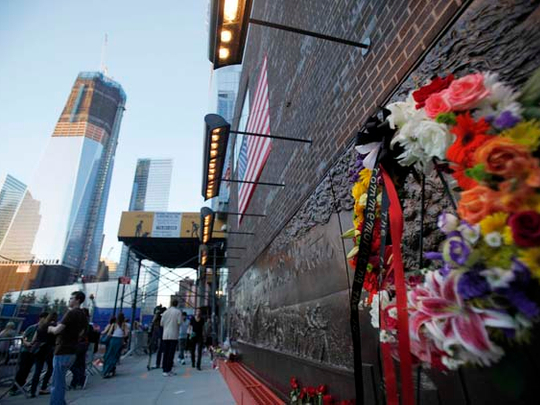
After 10 years since the September 11 attacks, we should ask ourselves whether it has changed us or not.
Has it altered how we perceive ourselves, others, and the entire world? Has it affected how we view issues, regions, and problems? And to what extent has it tarnished the way we digest as much as dissect events taking place around us?
There is no question that somehow and to some extent, the September 11 attacks have affected the way people live their daily lives — definitely immediately following the attacks. The extent of such influence varied, of course, from one individual to another and from one country to the other. Yet there is no denying that the ramifications were great.
And perhaps this was not so much because of the attacks themselves. Rather it was more so because of how the world reacted and how the US steered the direction of that reaction.
A campaign against terror spread to the four corners of the globe . For the eradication of terror ensued what was dubbed as ‘the war on terror' which involved all of us. We all somehow became either soldiers or victims in the scenario. And if we did not belong to either group, we were mere spectators whose fate was shaped by those guiding the agenda in the war on terror.
But 10 years on, how much has this crusade alleviated terror and those wielding the tools of terrorism? How much has it addressed the roots cause and, more importantly, has it really identified the real cause that ignited such a trail of destruction and horror all over the world? The elimination of a bogeyman must not give birth to another.
But unfortunately, this is exactly what happened over the past 10 years. Not only had a new bogeyman come to life, there were many who were amateur imitators who had a decade to clone, like a cancer. And perhaps it is this that posed the greatest danger and which was the most destructive of all.
Attack on freedom
Having said that, it is only appropriate to identify the fact that such a machine of hatred and destruction would not have existed had it not been for the tools of distribution.
After September 11, an entire industry for the creation and distribution of hatred and suspicion was used to help those who fought diversity. Whether it was in film, publishing, the media, or social networks — all came together in the service of this agenda. Has it not been a decade that turned Arabs and Islam into enemies of the world? Has not this industry gone on the offensive against all notions of freedom of speech and against any narrative that went against what became the norm?
Perhaps the biggest victims were not Arabs or Muslims. It was not even groups or individuals who had sympathised with their plight. The greatest loss was the elimination of all stances and positions that simply happened to be against the mainstream. Hence, anyone who had believed in or championed building bridges and tolerance between and amongst all was no longer welcome. These principles were totally sidelined.
Could it have been that the environment which September 11 had created brought out the worst in people across the world? Or did it just rekindle ancient biases and old stigmas that had never really died anyway?
Reflecting 10 years on, the biggest lesson the world should walk away with is that an extremist minority should never be allowed to take over the agenda and dictate it as that of the majority. And hence, the world should now move on and leave the September 11 attacks to where they belong — in history books.









